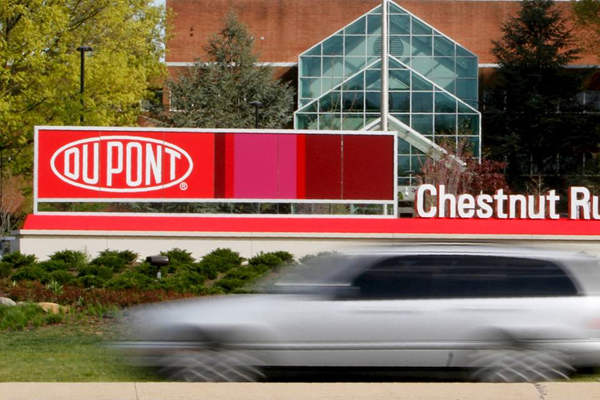|
THE
WALL STREET JOURNAL.
Business
|
The Game
Dow-DuPont Merger: Better Living Through Layoffs
This is not an America playing to win. It’s an America playing not
to lose.
|

The idea of a merger of DuPont and Dow Chemical reflects a
stark, unpleasant truth about the U.S. economy. PHOTO:
REUTERS |
 |
By Dennis
K. Berman
Updated Dec. 9, 2015 9:01 a.m. ET
|
To the eyeshades on Wall
Street, a
DuPont
-
Dow Chemical
merger
is a thing of utter sensibility. Cut costs. Rationalize. End two
problems with one final $60 billion flourish.
But there is a mournful
edge to the whole idea. It’s as if these two companies—absolute
bedrock of U.S. industrial might—have given up faith in themselves and
their futures.
Is thriving, surviving,
and adapting through 331 years of total history not enough to keep
these companies confident? DuPont was founded in 1802, Dow Chemical
Co. in 1897. Surely they’ve persevered through things tougher than
activist investors in argyles and loafers.
Self-confidence seems to
brim only in Silicon Valley. Across the American business world, the
goal is to cut costs, consolidate, do more with less.
You can literally feel
it when you are shoved onto on a shrunken middle seat on a United
Continental
or
American-US Airways flight. Or perhaps when you drink a future
Budweiser-Miller brew. Or are left selecting health insurance among a
dwindling set of megaproviders.
The argot of American
business has been reduced to “sensible growth,” “dividend return” and
“listening to shareholders.”
This is not an America
playing to win. It’s an America playing not to lose.
There are three main
reasons for this:
1) The economy at large
isn’t producing enough growth to keep stockholders content. For the
largest companies—who are more or less indexed directly to U.S. and
global growth—there is little they can do but keep cutting costs.
(Predictions for 2016 global GDP growth of 3.3% seem very aggressive.)
Eventually, this takes the forms of mergers, and 2015 has produced
over $4 trillion of transactions. The vast majority of them are “in
industry,” which is banker-ese for cost-cutting exercises. The CEO of
Fiat Chrysler Automobiles
NV
is literally begging
General Motors Co.
to buy
his company.
2) Activist investors.
They may well just be ciphers for the bigger economic forces at work,
but their particular brand of behavior modification has shaken boards
to their core. Activists can absolutely do good for companies and the
economy. (An
in-depth Journal study of their influence showed a mixed track record.)
The more important change is how they have forced boards into an
intellectual sameness, and certainly a fear of reproach.
Activists, as I’ve
written before, “patrol the markets like prison guards with billy
clubs.” Such seems the case with DuPont and Dow Chemical, both upended
by activists.
3) China. Why couldn’t
Sinochem International Corp. become the Huawei Technology of
agriculture? Few in the U.S. know much about companies like the
state-owned Sinochem, which are increasingly advanced players in the
global market for chemicals and agriculture technology. It’s not hard
to imagine a future where Sinochem slowly takes market share in small
markets, and then works its way across Asia, Africa and into Europe
and the Americas. It could be much in the way that Huawei has done for
telecom, forcing a four-way merger between the last Western majors of
Lucent Technologies,
Alcatel,
Nokia
Corp.
and
Siemens.
For Dow
and DuPont, perhaps it’s best to merge sooner than later.
Each of these reasons
suggest that a DuPont-Dow deal is, intellectually, a perfectly
sensible outcome.
Emotions are another
matter. It’s only a matter of time until the congressional hearings
and testimony from very angry farmers. Eventually someone will tote up
the loss of research and development, jobs, and economic support for
communities.
And then perhaps the
final, creeping fear: If the likes of
Pfizer Inc.,
Anheuser-Busch, DuPont, UnitedHealth Group Inc. and
American Airlines Group Inc.
have lost
faith in the future, why should we feel any different?
Write to
Dennis Berman at
dennis.berman@wsj.com
|